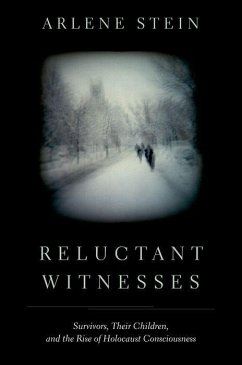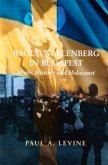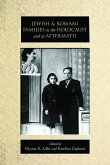For most of the postwar period, the destruction of European Jewry was not a salient part of American Jewish life, and was generally seen as irrelevant to non-Jewish Americans. Survivors and their families tended to keep to themselves, forming their own organizations, or they did their best to block out the past. Today, in contrast, the Holocaust is the subject of documentaries and Hollywood films, and is widely recognized as a universal moral touchstone. Reluctant Witnesses mixes memoir, history, and social analysis to tell the story of the rise of Holocaust consciousness in the United States from the perspective of survivors and their descendants. The public reckoning with the Holocaust, the book argues, was due to more than the passage of time. It took the coming of age of the "second generation" - who reached adulthood during the rise of feminism, the ethnic revival, and therapeutic culture - for survivors' families to reclaim their hidden histories. Inspired by the changed status of the victim in American society, the second generation coaxed their parents to share their losses with them, transforming private pains into public stories. Reluctant Witnesses documents how a group of people who had previously been unrecognized and misunderstood managed to find its voice. It tells this story in relation to the changing status of trauma and victimhood in American culture more generally. At a time when a sense of Holocaust fatigue seems to be setting in, and when the remaining survivors are at the end of their lives, it offers a reminder that the ability to speak openly about traumatic experiences had to be struggled for. By confronting traumatic memories and catastrophic histories, the book argues, we can make our world mean something beyond ourselves.
This book tells the story of the rise of Holocaust consciousness in the United States from the perspective of survivors and their descendants. If survivors tended to see Holocaust storytelling as mainly a private affair, their children -- who reached adulthood during the heyday of identity politics -- reclaimed their hidden family histories and transformed them into public stories.
This book tells the story of the rise of Holocaust consciousness in the United States from the perspective of survivors and their descendants. If survivors tended to see Holocaust storytelling as mainly a private affair, their children -- who reached adulthood during the heyday of identity politics -- reclaimed their hidden family histories and transformed them into public stories.







